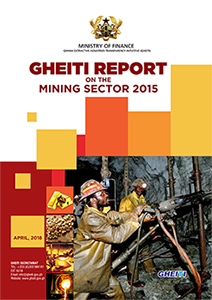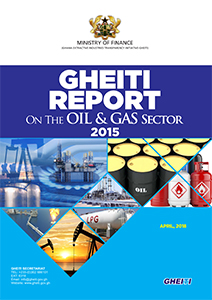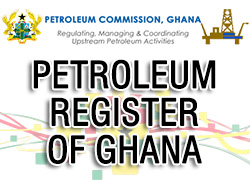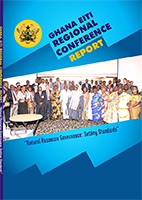| Special Report: The Cost of Galamsey |
 |
 |
 |
|
Large acres of land in the Ashanti and Central regions have been devastated by galamsey operators. The government may have succeeded in flushing out thousands of illegal small-scale miners, mostly foreigners, but a more daunting task of reclaiming the thousands of acres of degraded lands left behind by the 'galamsey' operators remains to be tackled. A visit to the illegal small-scale mining areas in the Ashanti and Central regions recently revealed the unbelievable vastness of degraded lands and the pollution of rivers.In many parts of the two regions, particularly at Tontokrom in the Ashanti Region and Dunkwa in the Central Region, large acres of land are dotted with huge pits, while many water bodies like the Offin and Oda rivers have been heavily polluted. The extent of degradation of the environment and pollution of rivers begs the question: What would have been the state of affairs if national security operatives, acting on the directives of the president, had not cracked down on the illegal small-scale miners? "The situation would have been terrible and there would not have been any land available," was a unanimous response by national security operatives engaged in the anti-illegal small-scale mining exercise and many concerned citizens. Environmental assessment The number of illegal small-scale mining sites is unknown, but given the clandestine and indiscriminate nature of the 'galamsey' business, they could be more than the EPA-approved small-scale mining sites. By virtue of their illegal conduct, 'galamsey' operators do not go through the approval processes at the EPA and so they have little appreciation for good environmental practices and no regard for mitigation measures. Reclamation challenges In the Upper Denkyira East District in the Central Region, there are more than 2000 acres of degraded lands begging for reclamation, while the course of River Offin has been blocked by the 'galamsey' operators, hampering the flow of water in the process. But the national security taskforce is totally helpless in dealing with the situation as of now. "There is the need to dredge the Offin but we don't have the logistics and equipment to do that job," the acting Central Regional Liaison Officer of the National Security Taskforce on Illegal Small-Scale Mining, WO1 Anthony Ampong (retd) indicated. New body required He said the sheer magnitude of the damage caused to the environment required the setting up of a separate body from the National Security Task force to undertake the reclamation exercise. For his part, the President of the Ghana National Association of Small Scale Miners (GNASSM), Evangelist Collins Osei Kusi, said there was the need to include the GNASSM in the reclamation exercise because members of the association knew the terrain very well. He said the involvement of the association would also help distinguish between the concessions of legal and illegal small-scale miners. Foreigners still around Some of the foreigners, according to security taskforce personnel, had returned to the country after they were arrested and repatriated to their countries earlier in the year. The illegal foreign miners are said to have changed their modus operandi by working in the night to outwit the national security taskforce. But the security personnel have been relentless in their operations, as they continued to take the 'battle' to the illegal small-scale miners and arrest them day and night. The Head of Public Affairs of the Ghana Immigration Service (GIS), ACOI Francis Palmdeti, confirmed that more foreigners had been arrested after the mass repatriation of those arrested earlier. He said as of Wednesday, August 28, 2013, the GIS had 30 Chinese in its custody awaiting repatriation. Security concerns The impression that the law is not deterrent enough to discourage illegal small-scale mining, coupled with the risky nature of the exercise and the observation that some of the illegal foreign miners repatriated earlier are returning to base, is been a source of worry to the security operatives. The mood gauged from some of them suggested that staying on the mine fields might not be the ultimate solution; a permanent solution is surely required. Local collaborators Traditional rulers are cited as the prime collaborators for releasing land to foreigners, even for a pittance. Sometimes, the traditional leaders allegedly collect reclamation bonds or what is locally termed 'cover money' from the foreigners, suggesting that they (foreigners) have the liberty to leave after destroying the environment and that they (chiefs) will do the reclamation. But the 'cover money' always remains covered in the pockets of the chiefs, leaving the land degraded and depriving the communities of its benefits. Some government officials and Members of Parliament (MPs) allegedly own concessions on which they engage 'galamsey' operators, and they pull every string to protect their interests. Source: Daily Graphic |










